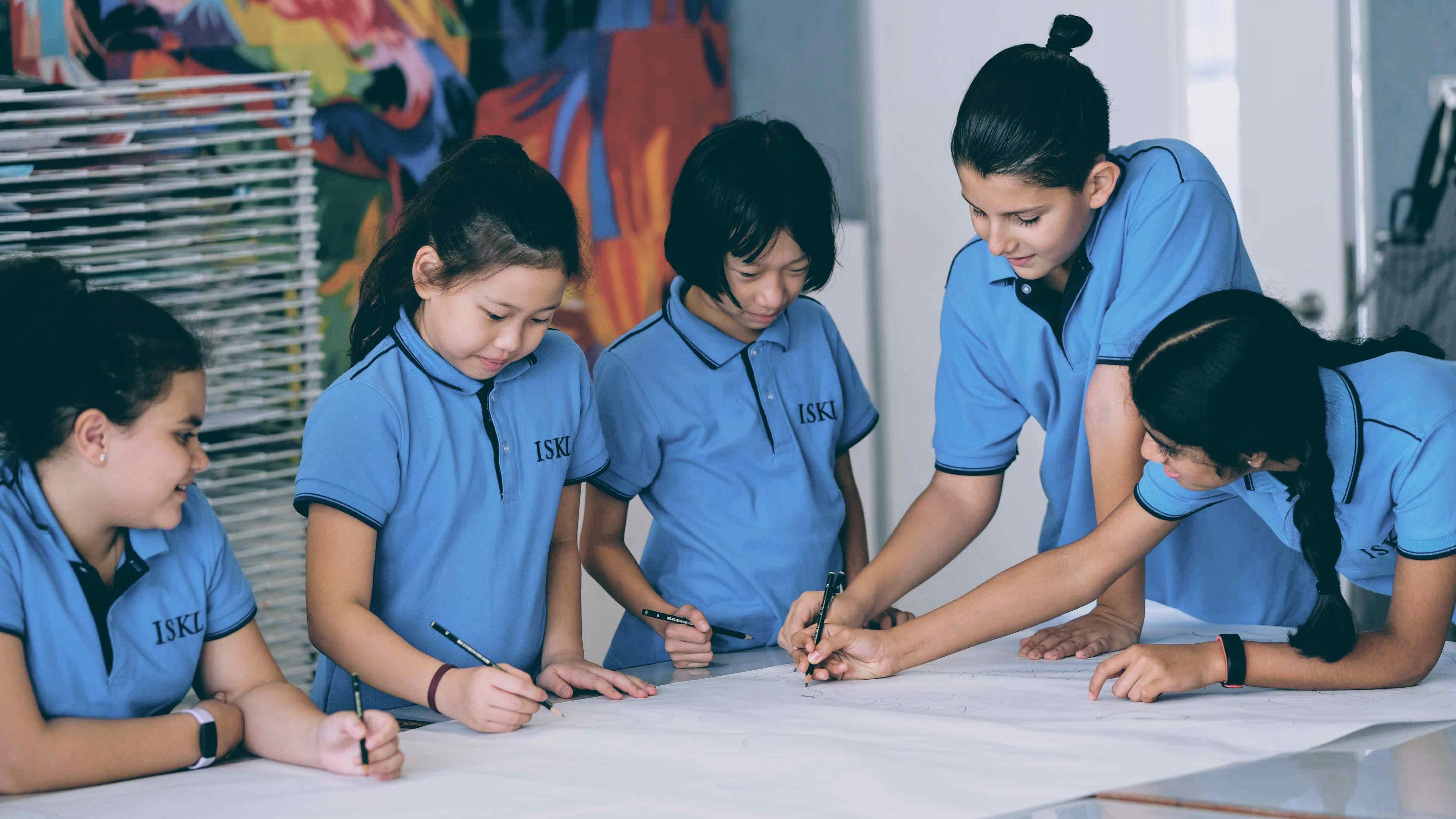The ability to reason critically is an important skill that enables us to investigate, analyze, and question. It supports effective problem-solving and gives us a deeper understanding of differing perspectives.
As one of ISKL’s Student Learning Results (SLRs), supporting our students in learning how to “Reason Critically” is embedded within our curriculum. The process of learning how to reason critically involves understanding how to use and combine different thinking strategies, analyze and consolidate information, and meaningfully reflect on learning.
Students are guided through this process and supported in developing their skills in using a variety of different Thinking Strategies (inductive, deductive, systems, convergent, divergent) that are appropriate to the situation. They are taught to analyze information (interpret, compare and contrast, categorize, prioritize, evaluate) and then consolidate the information (evidence, arguments, points of view, claims and beliefs). Finally, students learn how to undertake a process of inquiry and reflection, and generate questions that help transform thinking or strengthen understanding.

In addition to helping us become more effective problem-solvers, learning how to reason critically also helps us differentiate between facts, inferences, and opinions. It isn’t about right or wrong, but about understanding and appreciating the strengths and limitations of each of them. We cannot refute facts, however, depending on our perspective each of us may or may not come up with the same inferences from the same facts. Opinions, on the other hand, may or may not be based on facts. We are all entitled to have our opinions, but maybe not to impose them on others. Our students are learning how to put this approach into action – to critically analyze facts, opinions, and inferences, and explore issues, situations, and problems from different perspectives with empathy and understanding.
The situation, we are currently experiencing with the novel coronavirus, is a great example of the importance of critical reasoning. We are applying different thinking strategies, monitoring and analyzing information, considering facts, inferences, and opinions, reflecting, asking questions, and making evidence-based decisions. This intentional process underpins our approach and response and is particularly important at a time such as this when the facts are evolving more slowly than speculation and opinion.
Another example of putting critical reasoning skills into action is the forthcoming SEA Forensics and Debate Tournament. I am looking forward to watching our High School students putting the same critical reasoning skills into practice at this important event. As the problem solvers of the future, our students are well placed to tackle the challenges our world faces both at a local and global level using measured thinking, reason, and the ability to view issues from multiple perspectives.
Yours in collaboration and learning,
Rami Madani
Head of School

